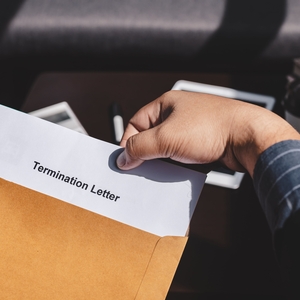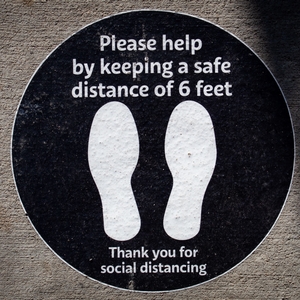Hospitality & Leisure

Employment & Labor Law Blog
Missouri Supreme Court establishes elements of a claim for aiding and abetting discrimination, and more

Employment & Labor Law Blog
NLRB Lacked Substantial Evidence to Find Unfair Labor Practice, Eighth Circuit Finds


Employment & Labor Law Blog
NLRB in the Crosshairs of an Unexpected Foe: Big Labor

Employment & Labor Law Blog
EEOC Issues Its Year End Litigation Round Up and Strategic Enforcement Plan for the Next 5 Years

Employment & Labor Law Blog
New NLRB Joint Employer Rule Greatly Expands Bargaining, Other Obligations

Employment & Labor Law Blog
EEOC Shines Light on Harassment Enforcement Priorities with New Guidance



Employment & Labor Law Blog
Lawrence, KS Passes CROWN Act Ordinance Banning Race-Based Hair Discrimination

Employment & Labor Law Blog
Supreme Court Reverses Standard for "Undue Hardship" in Title VII Religious Accommodation Cases

Employment & Labor Law Blog
EEOC Issues Proposed Regulations to Implement the Pregnant Workers Fairness Act

Employment & Labor Law Blog
Tenth Circuit Decision Provides Excellent Discussion of Burden to Show Pretext in Discrimination Cases

Product Liability Law Blog
The Impact of Mallory v. Norfolk Southern R. Co. in Illinois, Missouri & Kansas

Employment & Labor Law Blog
Let's Talk About the New Law Impacting Accommodations for Pregnant Workers



Employment & Labor Law Blog
Summary Judgment Dismissing Claims of Pregnancy and Disability Discrimination Affirmed by the Tenth Circuit


Illinois Law Blog
Illinois Appellate Court Expands Specific Personal Jurisdiction Analysis


Employment & Labor Law Blog
Can an employee's hostile, abusive, or offensive speech actually be protected and, if so, when?



Employment & Labor Law Blog
Eighth Circuit Rejects College Instructor's Claims of Sex Discrimination and Hostile Work Environment

Employment & Labor Law Blog
With Charge against Apple, NLRB General Counsel Seeks to Expand Scope of Protected Concerted Activity

Employment & Labor Law Blog
EEOC continues to prioritize its focus on the use of artificial intelligence in employment decisions.

Employment & Labor Law Blog
FTC Proposes Rule to Ban Non-Compete Agreements

Employment & Labor Law Blog
Missouri Legalizes Marijuana: How Amendment 3 Could Change the Workplace

Employment & Labor Law Blog
Last Exit to Seattle? Supreme Court to Determine Which Strike Tactics are Protected

Employment & Labor Law Blog
Federal Discrimination Claims against a Union Lacked Sufficient Factual Allegations, Tenth Circuit Affirms



Employment & Labor Law Blog
If You Want to Arbitrate, You Had Better Act Like It


Missouri Law Blog
Missouri Debates Shortening its Personal Injury Statute of Limitations

Employment & Labor Law Blog
Supreme Court Declines to Provide Clarity on Responding to Sexual Harassment in Trucking Industry


Employment & Labor Law Blog
In MHRA Disability Discrimination Claims, "Reasonable Accommodation" Remains a Fact-Intensive Inquiry

Illinois Law Blog
TRO Puts Illinois Judicial Circuit Redistricting to a Halt

Missouri Law Blog
The Pandemic Continues to Impact Kansas City Area Trials and Verdicts


Employment & Labor Law Blog
2021: A Whirlwind Year for Labor & Employment Law

Employment & Labor Law Blog
OSHA Reacts to COVID-19 Pandemic and Issues Vaccine-or-Testing Mandate: What Employers Need to Know (Update)

Employment & Labor Law Blog
They're Baaaaccckkkk: New COVID-19 Guidelines for Your Vaxed and Vexed Employees

Employment & Labor Law Blog
Department of Labor Withdraws Employer-friendly FLSA Test for "Employee" Classification

Employment & Labor Law Blog
Do You Have a Record? From Conviction History to EEO-1 Reports, Illinois Imposes New Requirements on Employers

Employment & Labor Law Blog
Are Jury Instructions "At-Will?" Not Under the Missouri Human Rights Act


Missouri Law Blog
An Inconvenient Forum? Move to Dismiss Before It's Too Late

Employment & Labor Law Blog
OK, Boomer...Does Your Employee Have an Age Discrimination Claim?


Employment & Labor Law Blog
Get Woke: Millennials and Age Discrimination


Missouri Law Blog
The Kansas City Area Saw Trials Plummet in 2020 Due to the Pandemic





Employment & Labor Law Blog
Inaccurate Background Reports Concerning Job Applicants May Give Rise to Employer Liability under FCRA

Missouri Law Blog
Got A Product Problem? Go To The Origin.

Missouri Law Blog
Missouri House Approves Stricter Standards for Punitive Damages Claims

Employment & Labor Law Blog
Employees Aggrieved Out-of-State Cannot Sue Missouri-based Employers under the Missouri Human Rights Act.


Illinois Law Blog
What Lies Ahead: Proposed Privacy Legislation in Illinois

Employment & Labor Law Blog
Arbitration Agreements 101: they require - you guessed it - agreement.




Employment & Labor Law Blog
SCOTUS Strikes Another Blow to Class-Action Claims, Favoring Individual Arbitration


Missouri Law Blog
Hopping on the Missouri Bandwagon? Not so Fast Out-of-State Litigants.


Missouri Law Blog
When it Comes to Nonconforming Goods, is the Customer Always Right?


Missouri Law Blog
City of St. Louis - Still A Judicial Hellhole



Employment & Labor Law Blog
Gender Stereotypes Now Serve as a Basis for Sex Discrimination Claim under the MHRA


Product Liability Law Blog
You've Got Mail - Service of Process by Mail is Satisfactory under the Hague Service Convention

Missouri Law Blog
The Daubert Standard - Coming Soon to a Missouri Court Near You

Product Liability Law Blog
Federal Judges Blow Their Stacks Over Boilerplate Objections

Employment & Labor Law Blog
Employees: Yes, You Can Owe Duties To Your Co-Employees



Employment & Labor Law Blog
Constructive Discharge Claims: When Does the 45-Day Period for Initiating Contact with the EEOC Begin to Run?



Employment & Labor Law Blog
The Eighth Circuit Provides Clarity on Outside Sales Exemption and Waiver Requirements under FLSA

Kansas Law Blog
Prevailing-party agents entitled to attorney's fees

Product Liability Law Blog
The Supreme Court's Jurisdictional Stretch in Resolving the Evidence Needed to Support a CAFA Removal



Product Liability Law Blog
In a differential etiology, experts need not rule out all possible causes

Kansas Law Blog
Punitive Damages Part 1: Don't Get Caught Flat-Footed

Employment & Labor Law Blog
Workers' Compensation + Retaliation + Missouri Supreme Court adopts the "contributing factor" standard

Kansas Law Blog
Kansas abolishes assumption of the risk defense.


Kansas Law Blog
No Signed Settlement Necessary, Except When It Is
































